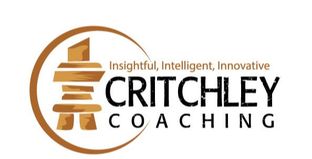
Isn’t it funny how a different perspective can change everything? Our course instructor, Tara Mohr, has no doubt given our upcoming exam plenty of thought. I have no doubt that she feels we are ready and that she has created a fair and valuable testing tool. I even notice she is framing this as ‘a wonderful opportunity to showcase all we have learned’. Hard though it might be to believe, I really do trust that this is the intent with which she is approaching this exam.
And yet….
I am still feeling a bit apprehensive. This is all despite the fact that I’ve maintained a regular study schedule, believe I’ve got a good grasp of the material, have been an attentive student, have completed all assignments and even practiced the skills we were taught.
Going through this process has given me reason to look back and recognize that when I was teaching, just because I believed the students were ready and well prepared, does not mean this is the way they may have seen things. It’s a great reminder about other things in our lives where our plan does not match up with the result. I recalled reading about this in Marita Fridjhon’s book, Creating Intelligent Teams.
Whenever we do something we do it with a certain intention. We have a purpose or a plan. This is a good thing. It means we are being conscious about what we choose to do. Even when we don’t think we have purposely set an intention, we really have done so. Even when we say, ‘Oh, I’m not going to plan, I’m just going to wait to see what happens and go from there’, this too, is an intention. Problems rarely arise from setting intentions. How then is it possible that a teacher can have a certain intention and the student can experience something else completely? For that matter how is it possible for us to set any intention, only to discover later that others misread us completely.
In cases like these, the challenges occur not necessarily because there is anything wrong with the intention itself, but rather because our behaviour does not match our intention. When this happens the outcome or impact is rarely what we hoped for.
When we set an intention, in our own minds we can visualize what we want to happen. We can strategize and plan and dream and prepare to manifest our idea. However, often we forget that we have very familiar patterns of behaviour that we use and that people are used to. If we do not align our behaviour with our intention, it is often easy for others to mistake our intention for something else.
For example, with Mother’s Day approaching, a child may want to let his mom know he really appreciates her and wants to demonstrate this by creating a special gift. His intention is fantastic. It may even be very well thought through. Let’s imagine that this same child, in the creation of the gift, creates a large mess (this is the behaviour that is visible to the mother). The mother, having absolutely NO IDEA what the intention was, only sees the behaviour (the mess) and she responds accordingly. This response is the impact created by the intention and behaviour. Needless to say, the result is not what the child envisioned when they began.
As a student teacher, when I was first learning to teach, a principal in the school where I had been assigned, had come to observe my well-planned lesson. I loved my students and was excited to have the principal observe me. At the end of the lesson, which had gone very well in my mind, he gave me a lot of praise about my content, delivery, classroom management and knowledge of the subject matter. He then asked if I had enjoyed the class. ‘Oh, yes!’ was my enthusiastic response. His response stunned me and yet it provided me with invaluable advice. He replied, ‘You need to let your face show that’.
The secret to avoiding this disconnect is for us to try to match, with as much accuracy as possible, our intention with our behaviour. This gives us the best chance to have our desired impact. We need to remember that others cannot possibly see into our minds and know our intention. The only tool they have to rely on is that of observing our behaviour. The extra challenge for us is that our behaviour patterns may be so automatic that we no longer recognize them as problematic.
In short, we can see our own intention but not our behaviour or our impact. Others can’t see our intention but can clearly see our behaviour and feel the impact.
In terms of my upcoming exam, I do know the intention of our course instructor. She has explained it verbally to us and she has given it to us in writing. Not only that, she invited one of her co-facilitators to also give her perspective on it, which aligned perfectly with what had been previously shared with us. Perhaps most importantly, both of these women have demonstrated nothing but complete integrity in every dealing I have had with them. There is nothing to make me think that this exam will be anything other than what they have offered – a wonderful opportunity to demonstrate my knowledge.
In terms of Mother’s Day, some of the little ones creating the ‘surprises’ won’t be very good at communicating their intentions. As recipients, perhaps we might choose this weekend to be one where we don’t judge the behaviour before we investigate the intention!
Happy Mother’s Day! I offer this with the best intentions!
Elizabeth is a life and leadership coach in Calgary, AB. She provides leadership coaching for individuals and groups and she creates and facilitates custom workshops for corporate, public and private groups. Contact Elizabeth to help you or your organization create alignment with your intention, your behaviour and the impact you have.


 RSS Feed
RSS Feed